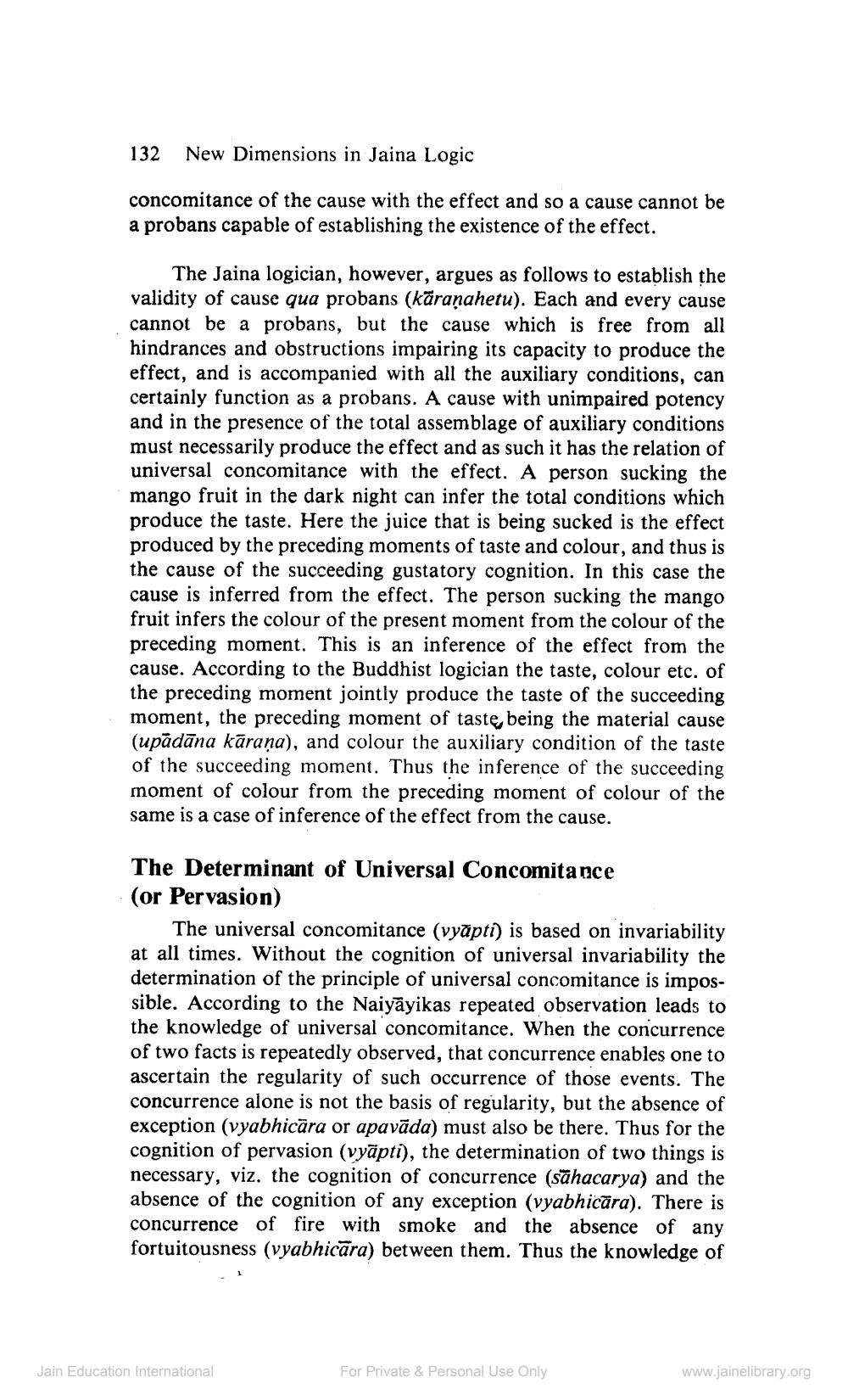________________
132 New Dimensions in Jaina Logic
concomitance of the cause with the effect and so a cause cannot be a probans capable of establishing the existence of the effect.
The Jaina logician, however, argues as follows to establish the validity of cause qua probans (kāraṇahetu). Each and every cause cannot be a probans, but the cause which is free from all hindrances and obstructions impairing its capacity to produce the effect, and is accompanied with all the auxiliary conditions, can certainly function as a probans. A cause with unimpaired potency and in the presence of the total assemblage of auxiliary conditions must necessarily produce the effect and as such it has the relation of universal concomitance with the effect. A person sucking the mango fruit in the dark night can infer the total conditions which produce the taste. Here the juice that is being sucked is the effect produced by the preceding moments of taste and colour, and thus is the cause of the succeeding gustatory cognition. In this case the cause is inferred from the effect. The person sucking the mango fruit infers the colour of the present moment from the colour of the preceding moment. This is an inference of the effect from the cause. According to the Buddhist logician the taste, colour etc. of the preceding moment jointly produce the taste of the succeeding moment, the preceding moment of taste, being the material cause (upādāna kārana), and colour the auxiliary condition of the taste of the succeeding moment. Thus the inference of the succeeding moment of colour from the preceding moment of colour of the same is a case of inference of the effect from the cause.
The Determinant of Universal Concomitance (or Pervasion)
The universal concomitance (vyāpti) is based on invariability at all times. Without the cognition of universal invariability the determination of the principle of universal concomitance is impossible. According to the Naiyāyikas repeated observation leads to the knowledge of universal concomitance. When the concurrence of two facts is repeatedly observed, that concurrence enables one to ascertain the regularity of such occurrence of those events. The concurrence alone is not the basis of regularity, but the absence of exception (vyabhicära or apavāda) must also be there. Thus for the cognition of pervasion (vyāpti), the determination of two things is necessary, viz. the cognition of concurrence (sähacarya) and the absence of the cognition of any exception (vyabhicāra). There is concurrence of fire with smoke and the absence of any fortuitousness (vyabhicāra) between them. Thus the knowledge of
Jain Education International
For Private & Personal Use Only
www.jainelibrary.org




